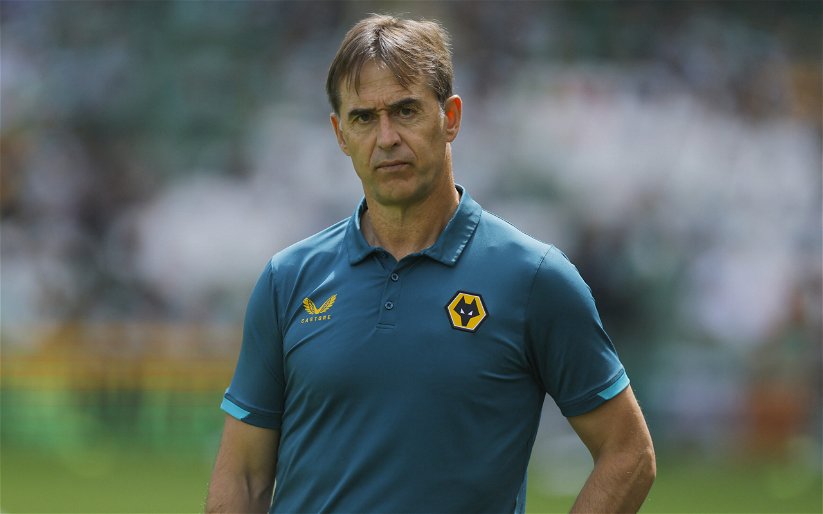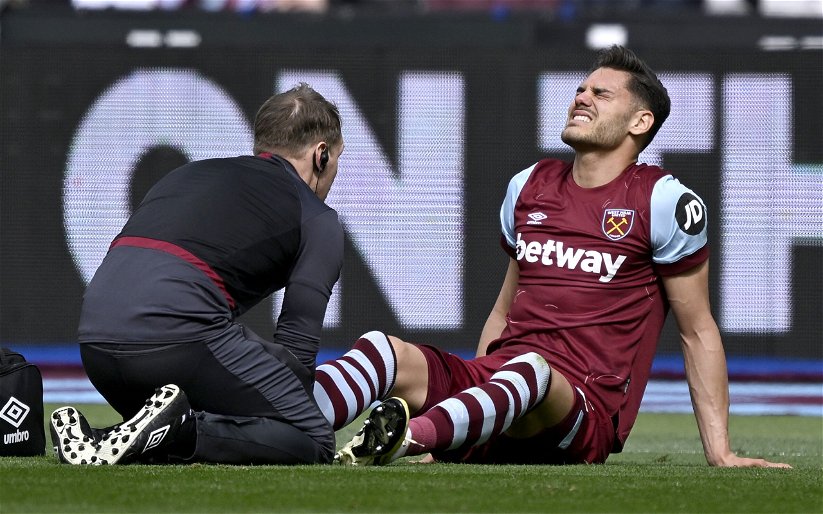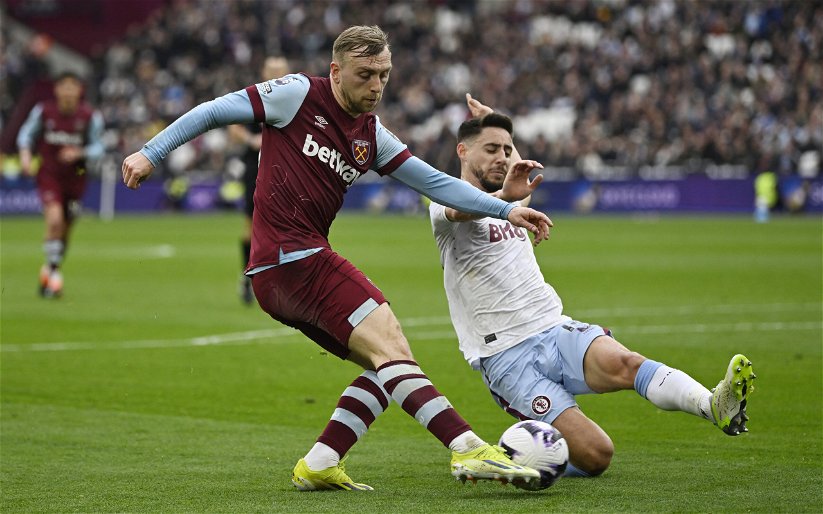This article was originally published on sporquo.com
Slaven Bilic entered the Premier League like thunder at the start of 2015. People did not know what to expect from him but after the first season, plaudits have been pouring in for Bilic. Coming to a historic club in London who were once accused by a loud mouth that they play “Stone Age Football” is tough. But if the club is managed by a cult hero and someone who calls the shots because “he wants to”, then you have to pay heed to him. Ladies and gentleman, please make way for Slaven Bilic, the maverick former Hammer who is now their maverick manager.
Slaven Bilic to my memory as a football quizzer, was infamously the man who got Laurent Blanc sent off in the 1998 FIFA World Cup semi-final. Heath Ledger as Joker in The Dark Knight said “Madness is like gravity and all it needs is a little push.” Blanc probably committed that push and Bilic could have won the Oscar for the reaction. In an interview with FourFourTwo Croatia in 2011, he remembered the incident –
“I panicked. I was paranoid that I would get a yellow card which would prevent me from playing in the final if we got there, so I theatrically went down to save myself from getting booked – although he did hit me.”
The Beginning of the Footballing Aspirations
The year was 1998 and the FIFA World Cup was just 14 days away, Slaven Bilic was diagnosed with a fractured hip. Medical practitioners advised him rather sensibly to skip the tournament. Against all medical advice, and despite not being able to train because of the pain, he decided to travel to France with the Croatian team and played the whole tournament with painkillers, further aggravating the injury. That, in a gist, is Bilic’s attitude for you. In January 2012, he finally underwent a 4-hour surgery to get that hip repaired. Yes, from 1998 to 2012 he lived with the same hip problem as he believed that it was gone after the World Cup.
Post his playing career, he started life as a lawyer who was fluent in English, German and Italian, and as a tattooed, earring-sporting guitarist with the alternative rock outfits Newera and Rawbau. Bilic has a tendency to co-relate everything in terms of rock music. In one of his first interviews in Turkey, Bilic said “my team is as energetic as Iron Maiden”, and he did live up to the claims.
Before his Besiktas days, Slaven Bilic managed Croatia and in one of his first moves he promoted 3 youngsters – Luka Modric, Vedran Corluka and Eduardo Da Silva – 3 U-21 players – and the press had a blast, calling him “cynical”, “mad” and “stupid” among other things. Today, they thank him because two of those players have become cult heroes for their country and clubs they have played for.
“Germany are Rammstein, not Nena.”
Slaven Bilic was talking to the press before meeting – and beating – Joachim Low’s men in Euro 2008, and couldn’t help but compare Die Mannschaft to the German musicians. Critics have always maintained that Bilic tried to impress people more than play football. Why shouldn’t he is the big question. When Jose Mourinho makes similar statements, then his “attitude” is hailed, but when someone else does it’s “wanna be”. Taking over at Lokomotiv Moscow in 2012, he spoke broken Russian at his unveiling. At Besiktas he boasted an Ottoman-style beard and readily accepted the comparison to a great conqueror, a portrayal bestowed upon by the fans. Wins against English big boys Tottenham and Liverpool in the Europa League further enhanced the reputation. Bilic competed well with Besiktas’s richer rivals, Fenerbahce and Galatasaray, but he failed to win a game against either of them in two years. Although a majority of supporters wanted him to stay, the club decided the results weren’t ‘good enough’ and let him go. When he was leaving Istanbul, fans waited for him at the airport, carried him on their shoulders and presented him with a T-shirt, that said in Croatian, “Farewell, grand commander”.
The Playing Style
During his second and final season with Besiktas, Slaven Bilic favored an attacking 4-2-3-1 system in 23 of his 34 Super Lig matches in charge. He began his life at West Ham by using a flat back 4 and that came across as a huge surprise, as he used all four defenders in 34 league games and close to 10 Europa League Matches On careful observation, the 4-2-3-1 that Bilic employs is a little distinct. What makes it so, is the use of two attacking full-backs instead of a more moderate mindset, 2 deep lying midfielders to protect the back 4 and 3 creative and attacking midfielders, specifically capable of scoring goals. The striker has to be versatile, mobile and clinical. In the current line-up and game play of West Ham two notable players who are thriving under Bilic are Dimitri Payet and Aaron Cresswell. For Fantasy Premier League players both paid good dividends and for Hammers they did the same on the pitch. Mark Noble was another of the beneficiaries of the Bilic era at the club, as he racked up stats in the midfield that surpassed those of players from most other top teams.
Impact of the Slaven Bilic style
 Bilic’s Besiktas played in a distinct Bilic style. They played a short passing game and possession football, and preferred controlling the game in the opposition’s half of the pitch.
Bilic’s Besiktas played in a distinct Bilic style. They played a short passing game and possession football, and preferred controlling the game in the opposition’s half of the pitch.
On average, Besiktas enjoyed 55 per cent of the ball and completed 81 per cent of their passes their league in 2013-14. In comparison, West Ham enjoyed 46 per cent possession and 75 per cent pass completion in 2014/15.
Besiktas averaged 370 short passes per game along with 70 long passes and 22 crosses, during Bilic’s last season there. Perhaps a stronger indicator of the style of play adopted by Besiktas during Bilic’s time was the fact that they won 11.9 aerial duels per game, while West Ham racked up 22.9 successful aerial duels per game this season.
Like West Ham, Besiktas were also blessed with a prolific Senegalese striker in former Hammer Demba Ba, who scored 18 goals in 29 league games. Defensively, Bilic’s side were compact and well-drilled, conceding less than a goal a game. The numbers of tackles, blocks, interceptions and clearances made put them among the leaders of the Super Lig. This mirrors what we have observed for West Ham last season, and solidifies the point that Slaven Bilic is a man used to carrying around his style wherever he goes.
If there were any weaknesses, it is that Bilic’s side is sometimes liable to be caught out by opposition teams playing on the counter-attack, and their offensive attitude and high defensive line sometimes makes them vulnerable to attackers breaking the offside trap.
Another issue might be discipline – Besiktas players were shown TEN red cards in the league in Bilic’s last season – but West Ham fans certainly do not mind their team putting their foot in, if the popularity of players like Julian Dicks and Tomas Repka were anything to go by!
The London Dreams
West Ham were the giant-killers on the road last season, beating Arsenal, Liverpool and Manchester City in their own backyards, while drawing away at Manchester United. What did Slaven Bilic change? Not much, but primarily the attitude of his players. Like his predecessors at the club, Bilic put a strong emphasis on keeping a well-organised shape on the pitch, but instead of passively sitting back and creating lucky chances on the counter, he instilled a far more aggressive mindset. Bilic’s midfielders Mark Noble and Cheikhou Kouyate played out of their skins at times, and worked with tremendous industry to win the midfield battle in their favour. This allowed the attacking players to express themselves far better than the Hammer faithful were used to seeing. The wildly gesticulating figure of Bilic on the sidelines was the key to this transformation.
Bilic has flirted with a range of formations at West Ham, from the 4-3-3, 4-2-3-1, and 4-1-4-1 to the formation he began the season with, a narrow 4-1-2-1-2. It has not been easy for rival managers to second-guess his strategies, which was the key to West Ham’s strong performances over the course of the season.
Slaven Bilic’s Bold Calls
Reece Oxford, Kevin Nolan, Manuel Lanzini and Victor Moses have all found themselves being tactically substituted at half-time during games. Angelo Ogbonna only made it until the 35th minute against Bournemouth. These changes stand as the proof of the technical awareness that Bilic possesses and the testament of the fact that bold calls are in order at the club. The use of Andy Carroll as a substitute has been interesting and effective. The more impressive part of the execution of the Carroll move has been the timing, examples being the games against Crystal Palace and Chelsea. In both these games, Carroll’s presence harassed the opposition and inspired the victories. In general, West Ham were a difficult team to break down last season, but individual mistakes cost them in crucial stages, or we could have been witnessed another miracle in the Premier League (along with Leicester City’s); maybe next season then.
The Challenges at West Ham
 A new dawn at the Olympic Stadium with more than 50,000 season ticket holders, an exciting team and a charismatic manager; life for a Hammer is looking up. The defeat against Swansea in the penultimate home game of the season, broke a little of their hearts. Without that one calamitous result, West Ham could have gone into the final matchday with a shot at finishing fourth. This heart-breaker was followed by an emotional night and a stirring comeback against Manchester United on the finale at Upton Park and things pretty much balanced out.
A new dawn at the Olympic Stadium with more than 50,000 season ticket holders, an exciting team and a charismatic manager; life for a Hammer is looking up. The defeat against Swansea in the penultimate home game of the season, broke a little of their hearts. Without that one calamitous result, West Ham could have gone into the final matchday with a shot at finishing fourth. This heart-breaker was followed by an emotional night and a stirring comeback against Manchester United on the finale at Upton Park and things pretty much balanced out.
Bilic’s coming to West Ham has been more of a homecoming of a warrior for the fans. But for Slaven Bilic, becoming the manager of West Ham United was like buying a dog.
“When you are buying a dog you find like this – 10 reasons not to buy it. Because you can’t go out more, if you are travelling it’s a problem, he’s going to pee there and there until he learns. He’s going to bite your cat; he’s going to leave your place smelly.”
Bilic is fearless and he is not afraid to spoil his legacy as a cult hero at West Ham. In an interview with Sky sports he narrated a story of Shota Arveladze, and said the following –
“Shota played for Trabzonspor, which is a big Turkish club. At Trabzonspor he made a big name there and then he went to Ajax, then Rangers. He was a really good striker. Then in my time at Besiktas he was the coach of Kasimpasa which is a good club from Istanbul. Then Trabzanspor were always trying to make him come as a coach, as the manager. But he said ‘no’. For two years, I think, he said no. He said ‘the only club I ain’t going to manage is Trabzanspor because I am a hero there and I don’t want to ruin it’. That is always the possibility. Then at the beginning of this season, he went there. He left after, I don’t know, two and a half months. I haven’t spoken to him but probably he ruined a little bit the legacy. So there’s always that chance but it’s like in everything. With everything there is one per cent, five per cent, 50 per cent risk that you ain’t going to turn out that good.”
Slaven Bilic is aware of the “rock n’ roll” image that accompanies him, but he is a slowly building up a resume that speaks more of his image as a serious, tactical-astute and confident manager. He admits dropping players is the hardest part of his job, but believes in doing what is required to achieve the rights. He also admits, without an inch of arrogance, that he knows he is “good”.
Bilic’s approach is built on hard work, ethics and pure passion. He describes pressure as ‘adrenalin’ and admits he sometimes does not have the time or space for a normal life.
“This job, it drains you…I don’t have time to go to Madame Tussaud’s. I have time to go there – I can say to my wife ‘let’s go’ – but I don’t have time in my memory. I don’t have time in my head for that. If the day was not 24 hours but 36 then maybe.”
The ambition at West Ham is matched by the ambition that drives Bilic. The search for the label of being a “top-six” club amalgamated with the newly found confidence and swagger under their new manager has made them into a force to be reckoned with. The stadium move is a financial and a strong statement of these intentions, and the appointment of Slaven Bilic last season set the wheels in motion. Bilic is aware of the challenges that lie ahead and is mindful of the uphill task he has been assigned, but he is certainly not lying down to them.
“What we have is a great plan but we need to do it. It’s easy to say ‘we are a top six club’. But we are not a top six club. Not at this moment in time. I will give my everything to try and achieve that but basically you can’t become a top six club unless you have done it for three, four, five years.”
Coming back to the ‘buying a dog’ analogy, someone asked him at the end of the interview whether he owned a dog. Bilic answered with a smirk, “Two dogs”; an answer which conclusively proves the attitude of the ‘rockstar’ manager.
Interviews and excerpts from Sky Sports, Guardian, Croatia.de and documentaries published by WHUFC
For more news and views on everything football, be sure to check out sporquo.com



